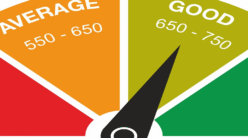A natural person owes you a large sum and does not respond to your reminders. You then wonder what to do to arrive at debt collection. The text below tells you the essentials of what you need to know about the solutions to be used.
efore legal action: amicable action.
If you think that an amicable arrangement is possible to recover your unpaid debts, you can put a professional specialized in collections in contact with your debtor. This person will go to his home to ask him what are the amounts of his resources and his monthly expenses. Then, it will negotiate with him a plan for settling unpaid debts so that debt collection is successful. She will try to convince your debtor to fulfill his obligations by telling him what he risks if he is not cooperative in collecting debts.
After having previously verified the legal identity and checked the solvency of the debtor, the objective is to determine the reason for non-payment (dispute, financial difficulty, bad payer, etc.), and according to the information collected, propose a solution to the settlement. of the unpaid invoice (commercial discount, schedule, transaction, payment, etc.), without however automatically excluding legal proceedings.
Particular attention must be paid, depending on the context, to the preservation of your commercial relations with your customers.
In case of failure of the amicable action: legal action.
This procedure is often effective for debt recovery. It must be brought before the district court or before the high court if your debt is greater than €10,000. Once the court has ordered your debtor to pay his debt and the decision has become final, you can have it enforced by a bailiff. In this case, be aware that the law greatly facilitates your steps, because the bailiff can ask the competent authorities to communicate to him the new address of your debtor if he has disappeared. The bailiff can also know the contact details of his employer as well as the references of his bank accounts. This possibility is offered by the law of February 2004 which allows the bailiff to ask the tax departmentthe references of the bank accounts opened in France in the name of a taxpayer and listed in the file called FICOBA. On the other hand, if the amount due is very large, you will be able to know the real estate assets that your debtor has as well as the mortgages that are already registered on each of his goods. Finally, if he owns property that he rents out, it will be possible to seize the rents owed to him by his tenants.
Debt collection is a process that can be long and tedious…
The recovery procedure may concern you in the professional field (business recovery, recovery costs, international recovery) but also in your personal life (recovery of alimony, amicable recovery, etc.)
Pre-litigation reminders
For trade receivables, you can choose the intervention of a professional third party giving formal notice by registered letter to the debtor company to perform its obligations with regard to its supplier with a view to bringing down a lot of unpaid bills.
The objective is to speed up payments and reduce the DSO (Day Sales Outstanding) also called the average collection or payment period (DMP) in French.
Extra-judicial and judicial litigation
When extra-judicial and/or judicial action against the debtor proves to be appropriate and/or urgent, we first draw up an estimate of the costs to be incurred. With regard to the legal quality of the file, the solvency of the debtor and the amount of the debt , the collection company then proposes the action most suited to the issue, taking into account the different options in terms of international channels for forced execution.
Insolvency proceedings
The service provider does not limit itself to the formalities of declaration of claims and the follow-up of the collective procedure, it also ensures that its service is accompanied by:
Formalities with the procedural bodies to have the client’s claim recognized,
Possible enforcement of guarantees, sureties attached to the receivable,
Contact with agents,
To be appointed, if necessary, if the debt is significant, as Controller to the Judicial Representative,
Monitoring of the proper execution of clearance plans,
If applicable, call for compensation of managers’ liabilities.





